Click here if you don’t see subscription options

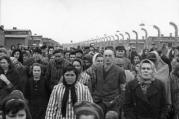
On March 16, 1998, the Holy See’s Commission on Religious Relations with the Jews published "We Remember: A Reflection on the Shoah." This document is only one of a long series of statements that have come from official Catholic sources. In 1990 the same commission issued the "Declaration of Prague," in which it acknowledged that some traditional Catholic teaching and practice had contributed to the spread of anti-Semitism in Western society.
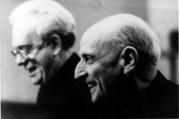

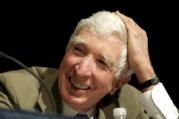


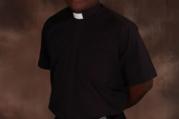
In the movie "Fiddler on the Roof," the villagers of the Jewish enclave Anatevka, which is being overrun by Orthodox Christians, strive to maintain the traditions of their forebears, which have shaped their lives and given meaning to their society. But the new culture is too aggressive, too sophisticated to be ignored or resisted by the ingrained traditions of Anatevka. In the end, the existence of the Jews is "balanced as precariously as a fiddler on the roof."
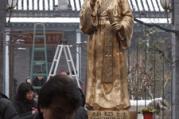
A Jesuit friend gave me his copy of Generation of Giants, by George H. Dunne, S.J., not long ago and told me that this history of the Jesuit mission in China in the 15th and 16th centuries reveals a particularly great hour in the saga of Jesuit history. Indeed it does; that much I really already knew. But in reading the book, I have come to see that the lives of the wonderful "friends in the Lord" who made up the Christian Church in China are more than an artifact to be cherished by Jesuits. They were witnesses to the meaning of our Christian mission to evangelize, now as much as ever.
At one point in the story, after the death of Matteo Ricci, the first great leader of the mission and a man of magnetic grace and genius (an Italian whose face now appears on a Chinese postage stamp), a rising Chinese bureaucrat launched a vicious crusade against the Jesuits in order to further his own political career. He succeeded in obtaining an imperial edict banning the Christians, and the modest inroads the mission had made into an acutely xenophobic land were destroyed. The Jesuits were sent packing, either into hiding with powerful Chinese friends or back to Macao, the Portuguese outpost on the southwest coast of China. They temporarily retrenched, determined to wait out the storm that Shen Ch'iieh had visited upon them, and they busied themselves studying the literature and languages of China.

I am grateful to the conference organizers for suggesting the word "glimpse" in the title of this talk, because I have to admit at the outset that I do not have a vision of a fully formed new feminism rising like Botticelli’s Venus in all her glory from the sea. But that word "glimpse" got me thinking about the story of Moses in the Book of Deuteronomy. Moses, as you know, never did enter the promised land. After 40 years of wandering in the desert, however, he "glimpsed it from afar." And that glimpse was so satisfying that he died happy.
